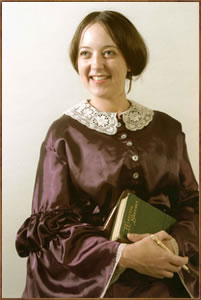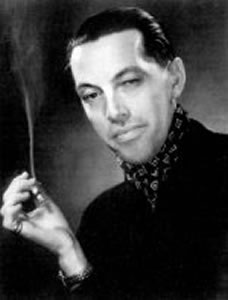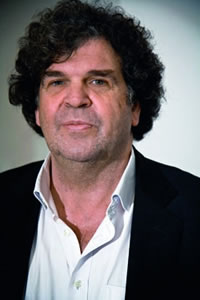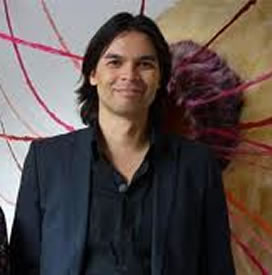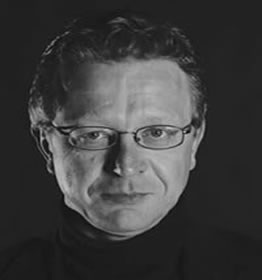De Engelse dichter en schrijver Mario Petrucci werd geboren op 29 november 1958 in Londen. Zie ook mijn blog van 29 november 2008 en ook mijn blog van 29 november 2009 en ook mijn blog van 29 november 2010.
LIGHT
It puffed up our brains –
a bicycle-pump pressure down rubbery cords.
One hundred and eighty-six thousand
miles per second.
Dolphin has no such constancy,
hears like soup.Its grey-blue steel
jerks into air, makes children gasp.
Dolphin hoops the water – each leap
equal to its aether.
On the west coast I dug
for potatoes.Light there took its time
to gather, took time to roll in
its hard-earned pillows of dark.
Our Enlightenment boys
ply the radioactive, black-goggled
in the bomb-burst.They squint past embers
at the rim of the universe, urgent
for the one dark thing.
Already they catch it, condense it,
flourish it across the benchtop
like a royal flush.Bounce it off the cheek
of the moon.Make it check itself –
snitch on the slightest anomaly.Back
and forth, the caged exactitude.
It’s the one constant, they said.
Let us build all space, all time, all
knowledge around it.
But the dolphin.The filed
white teeth, its white life.
It has missed the tide.
The fish-mammal is beached, flesh
desiccating in iridescent decay.
Its shrill scrimshaws to the marrow.
The children think it is smiling.
everyone begins as fish &
ends so – spiralling after
egg (that other half of our
chains) & setting gills
in gristled knot that buds
legs as tadpoles do & blow-
hole ears halfway down
the back & low-set eye
alien as featherless chick –
ah we have peered into
that shared ovum whose
blasto-flesh runs its gauntlet
of fowl & fish so fused at
the tail nothing can be told
apart – is this why when i am
late i find in upstairs dark
you – on placenta duvet &
hunched round self as wom-
bed ones are? – as though
i had just returned from
all eternity to catch you
naked out sleepwalking
space without even
navel-twisted purpled
rope to hold you
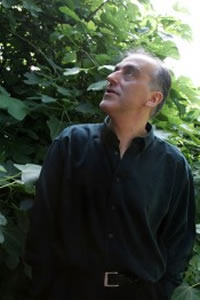
Mario Petrucci (Londen, 29 november 1958)
Lees verder “Mario Petrucci, Carlo Levi, Jean-Philippe Toussaint, C.S. Lewis”

